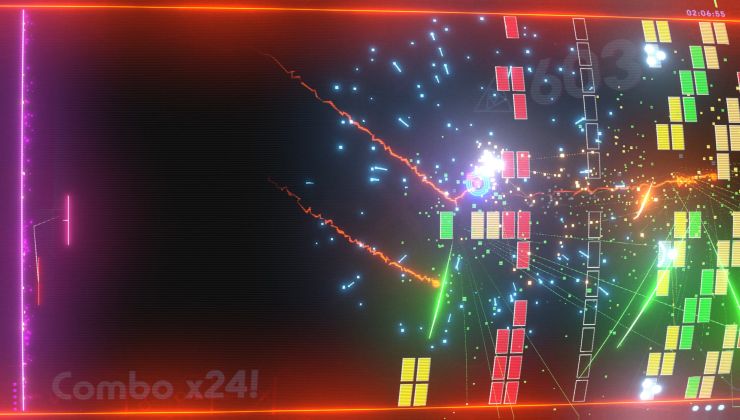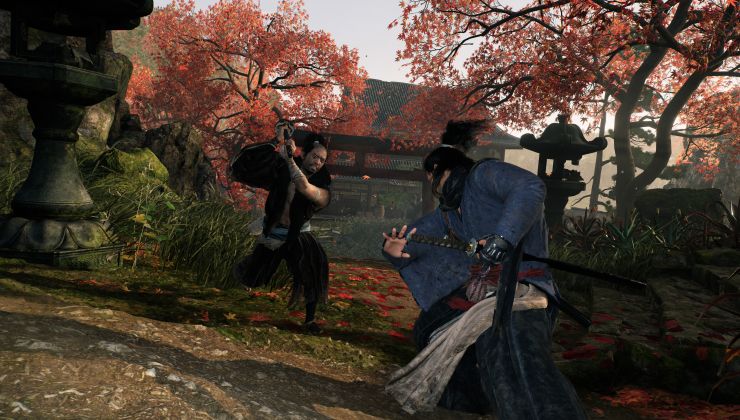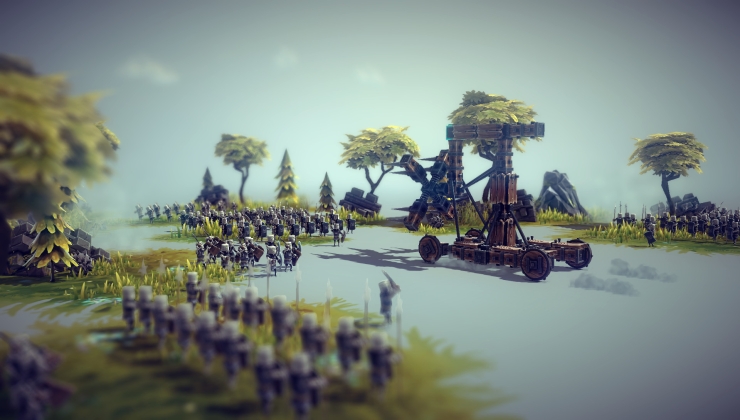Update: Canonical are now saying 32bit libraries will be "frozen" and not entirely dropped.
Original article:
Things are starting to get messy, after Canonical announced the end of 32bit support from Ubuntu 19.10 onwards, Valve have now responded.
Speaking on Twitter, Valve dev Pierre-Loup Griffais said:
Ubuntu 19.10 and future releases will not be officially supported by Steam or recommended to our users. We will evaluate ways to minimize breakage for existing users, but will also switch our focus to a different distribution, currently TBD.
I'm starting to think we might see a sharp U-turn from Canonical, as this is something that would hit them quite hard. Either way, the damage has been done.
I can't say I am surprised by Valve's response here. Canonical pretty clearly didn't think it through enough on how it would affect the desktop. It certainly seems like Canonical also didn't speak to enough developers first.
Perhaps this will give Valve a renewed focus on SteamOS? Interestingly, Valve are now funding some work on KWin (part of KDE).
Looks like I shall be distro hopping very soon…
To journalists from other websites reading: This does not mean the end of Linux support, Ubuntu is just one distribution.
Linux 2 Ep 1I personally think, that Valve should create a Linux-Distribution, which is NOT based on Debian or Arch. It would be much better to have more controls, hat should remain and what not.
BUT Valve should also recreate a new desktop environment, which aims more for PC instead of Console.
And call it
Crowbar Linux
Or Free Man's Linux
I'll not be surprised if Canonical backs out of this decision again, seeing the reception.
Already happened:
https://www.omgubuntu.co.uk/2019/06/is-ubuntu-not-dropping-32-bit-app-support-after-all
I’m sorry that we’ve given anyone the impression that we are ‘dropping support for i386 applications‘. It is simply not the case. What we are dropping is updates to the i386 libraries, which will be frozen at the 18.04 LTS versions.
That is not backing out, it is a clarification of their plans. They never said that 32 bit programs would not be able tun run any more. A lot of us are worried that the new ways will be Inferior to what we have today, especially in regard to how complicated it will be for users. And I still are.I'll not be surprised if Canonical backs out of this decision again, seeing the reception.
Already happened:
https://www.omgubuntu.co.uk/2019/06/is-ubuntu-not-dropping-32-bit-app-support-after-all
I’m sorry that we’ve given anyone the impression that we are ‘dropping support for i386 applications‘. It is simply not the case. What we are dropping is updates to the i386 libraries, which will be frozen at the 18.04 LTS versions.
A lot of online publication and posters claimed that it would be impossible, but this is Linux not Mac or Windows so there will always be ways for users to do what they want differently than their distribution providers. Do not believe everything you read.
But distributions are about convenience, after all we could all do a Linux from scratch installation and not use any distribution after all. So if they make it a lot harder for users we should go elsewhere.
I'll not be surprised if Canonical backs out of this decision again, seeing the reception.
Already happened:
https://www.omgubuntu.co.uk/2019/06/is-ubuntu-not-dropping-32-bit-app-support-after-all
I’m sorry that we’ve given anyone the impression that we are ‘dropping support for i386 applications‘. It is simply not the case. What we are dropping is updates to the i386 libraries, which will be frozen at the 18.04 LTS versions.
That is not backing out, it is a clarification of their plans. They never said that 32 bit programs would not be able tun run any more. A lot of us are worried that the new ways will be Inferior to what we have today, especially in regard to how complicated it will be for users. And I still are.I'll not be surprised if Canonical backs out of this decision again, seeing the reception.
Already happened:
https://www.omgubuntu.co.uk/2019/06/is-ubuntu-not-dropping-32-bit-app-support-after-all
I’m sorry that we’ve given anyone the impression that we are ‘dropping support for i386 applications‘. It is simply not the case. What we are dropping is updates to the i386 libraries, which will be frozen at the 18.04 LTS versions.
A lot of online publication and posters claimed that it would be impossible, but this is Linux not Mac or Windows so there will always be ways for users to do what they want differently than their distribution providers. Do not believe everything you read.
But distributions are about convenience, after all we could all do a Linux from scratch installation and not use any distribution after all. So if they make it a lot harder for users we should go elsewhere.
Still, it means that Canonical won't maintain it anymore... If they don't someone will have to. It will then become external to Ubuntu and will have to be added like an optional ppa (my understanding). Just another hurdle to new Linux users that want a plug&play experience.
Am I wrong?
Last edited by Mohandevir on 23 Jun 2019 at 4:23 pm UTC
If Valve move to FreeBSD, that will be great! Because BSD is more faster than Linux. Only AMD cards will have no binary drivers, so will force to use Mesa. For Nvidia is OK. PlayStation uses BSD already and we saw how it run.
Oh yes of course! Valve scraps everything they did for Linux (and community) and goes for BSD, turning to the vivid BSD gaming community for support, hoping for engine vendors, hardware vendors, middleware vendors, game developers to support their brand of BSD .. or doing it all themselves, because Canonical stops delivering Linux 32bit libs? I don't think so.
If Valve move to FreeBSD, that will be great! Because BSD is more faster than Linux. Only AMD cards will have no binary drivers, so will force to use Mesa. For Nvidia is OK. PlayStation uses BSD already and we saw how it run.
Oh yes of course! Valve scraps everything they did for Linux (and community) and goes for BSD, turning to the vivid BSD gaming community for support, hoping for engine vendors, hardware vendors, middleware vendors, game developers to support their brand of BSD .. or doing it all themselves, because Canonical stops delivering Linux 32bit libs? I don't think so.
<3
I'll not be surprised if Canonical backs out of this decision again, seeing the reception.
Already happened:
https://www.omgubuntu.co.uk/2019/06/is-ubuntu-not-dropping-32-bit-app-support-after-all
I’m sorry that we’ve given anyone the impression that we are ‘dropping support for i386 applications‘. It is simply not the case. What we are dropping is updates to the i386 libraries, which will be frozen at the 18.04 LTS versions.
That is not backing out, it is a clarification of their plans. They never said that 32 bit programs would not be able tun run any more. A lot of us are worried that the new ways will be Inferior to what we have today, especially in regard to how complicated it will be for users. And I still are.I'll not be surprised if Canonical backs out of this decision again, seeing the reception.
Already happened:
https://www.omgubuntu.co.uk/2019/06/is-ubuntu-not-dropping-32-bit-app-support-after-all
I’m sorry that we’ve given anyone the impression that we are ‘dropping support for i386 applications‘. It is simply not the case. What we are dropping is updates to the i386 libraries, which will be frozen at the 18.04 LTS versions.
A lot of online publication and posters claimed that it would be impossible, but this is Linux not Mac or Windows so there will always be ways for users to do what they want differently than their distribution providers. Do not believe everything you read.
But distributions are about convenience, after all we could all do a Linux from scratch installation and not use any distribution after all. So if they make it a lot harder for users we should go elsewhere.
Still, it means that Canonical won't maintain it anymore... If they don't someone will have to. It will then become external to Ubuntu and will have to be added like an optional ppa (my understanding). Just another hurdle to new Linux users that want a plug&play experience.
Am I wrong?
They will maintain 18.04 for 3 more years, so also if one gets it from a LXD container, snap or flatpak. But after that not any more unless they put the needed 32 bit libraries in the AMD64 repositories like they already do for 32bit glibc and plan for the proprietary nvidia drivers. But who knows if they will do that.
Also if I get to take a stab at a new Steam named OS I might suggest a Linux named *whistles* GLaDOS
Everything else either has short support periods (Fedora), feels unpolished (OpenSUSE), is perhaps too technical (Debian), or is a hobby project by a few developers (basically everything not already mentioned).That is why Valve long ago should have thought about developing its own distribution. And do not wait until someone sticks a knife in their backs.
Also if I get to take a stab at a new Steam named OS I might suggest a Linux named *whistles* GLaDOS
Great!
But wait... GLaDOS is basically an evil piece of software that tries to manipulate and kill you. :D
Thanks Canonical :><:No doubt we will. But they will be fools to do so. Look, Microsoft and Apple make stupid decisions all the time. When they do, just exactly what can you do about it? Can you switch to a different Windows or Mac OS distro?
Now we will have lots of game devs and publishers saying:
"See, there is no reliable Distro in the Linux world. It doesn't make sense to ship software for Linux"
This is a time to celebrate the fact that Linux distros are not monopolies.
I simply look beyond a few personal inconveniences at the bigger picture.Because . . . the libraries take up a few megs on your terabyte+ hard drive? Yeah, surely it's worth getting rid of some functionality to get that!!!
And the bigger picture is that progress requires sacrifice. Can't play some games/use some apps anymore? So be it, if that's the price to pay to finally get rid of old stuff like 32bit for good.
But you know, all you have to do is delete the relevant libs. Nobody's stopping you.
Pop!_OS is the best solution really . Hell they are already better than Ubuntu on some various things .Not sure -they probably are, but they are also a bit small, based on Ubuntu and unfortunately ship only the gnome desktop - so maybe something more...diverse ;-) concerning DEs and a little more upstream. I would love to see Mint but they have a similar situation. openSUSE may actually not be a bad idea.
at least they have an source of income
And like I said in that other discussion: One can't expect an old binary to run on new computers for all eternity.Why not?
I'm beginning to think that the decision Canonical made is exactly what they want. This is all speculation on my part, but I think they want to focus 100% on the enterprise (AWS, Azure, etc...) and get out of the end-user desktop market. Sad if true.Could be. I've noticed a tendency with distros produced by companies: They enter the scene by creating a lot of buzz as the saviors of the Linux desktop. They leverage this into a more or less prosperous business selling their distro for servers and other back-end work. They gradually ease away from the desktop, which they have found impossible to make money from; it seems to be merely overhead. Once they are no longer seen as major desktop players, their share of back-end stuff gradually erodes because there is no buzz about them. Then some new company comes along, creating a lot of buzz as the saviors of the Linux desktop . . .
The next one could be either Valve or someone partnering with Valve, the big difference being that Valve seem pretty convinced a robust Linux end-user desktop is one way or another going to make them money.
That wouldn't serve any purpose, as it would only be for me. As I said, I'm looking at the bigger picture here.I simply look beyond a few personal inconveniences at the bigger picture.Because . . . the libraries take up a few megs on your terabyte+ hard drive? Yeah, surely it's worth getting rid of some functionality to get that!!!
And the bigger picture is that progress requires sacrifice. Can't play some games/use some apps anymore? So be it, if that's the price to pay to finally get rid of old stuff like 32bit for good.
But you know, all you have to do is delete the relevant libs. Nobody's stopping you.
And the bigger picture is that right now, 32bit is like an annoying mosquito at the butt of many developers and users... just look at this very situation.
If 32bit were gone for good, well, so would be situations like these.
But obviously, this was not the way to go about it, Canonical should have gathered some support and actual solutions from bigger linux players beforehand.
Is it really because of the decision to drop 32bit OS support? Nobody, literally nobody, especially not Valve's target audience, is still using a 32 bit OS unless they just don't know any better. I think it's more because they already have steamOS and ubuntu is falling out of fashion anyways.Again they are not just dropping the 32 bit flavor , they are freezing the 32 bit multilib in terms of update (essentially deprecating it ) sooo as a result a lot of your games on steam won't work out of the box on newer versions of Ubuntu but more importantly even after trying to get the 32 bit libs it might still not work all that well because they're not updating them anymore either .
Oh damn, I mean I get why canonical would want this, 32-bit should basically only exist for legacy applications, modern applications should not be relying on it, and theoretically on a modern OS you should never need to use 32-bit libs, but there's always some legacy application creeping around somewhere that relies on it, and there's always some stupid developer that didn't bother compiling for 64 bit here and there.
I mean this kinda needs to happen, but maybe it's a bit ahead of it's time, this decision.
Not only legacy application, but also applications with legacy code which is not 64bit compatible - there are old project with huge codebase. Or for some instance for application for which is 32bit better. [Here is post from enemy camp developer about their visual studio (2019 is still 32bit aplication, i asume point are still valid, or their codebase is realy incompatible)](https://blogs.msdn.microsoft.com/ricom/2009/06/10/visual-studio-why-is-there-no-64-bit-version-yet/)
And like I said in that other discussion: One can't expect an old binary to run on new computers for all eternity.Why not?
Do I really need to explain that? Why do do think they want to do this to begin with? Why do we phase out technology quite regularly - despite the hard struggle every bloody time we do it?
Why did Windows become such a bloody, security issue riddled mess? Several reasons, but the need to be backward compatible is one massive reason. Messy as f*ck. A patchwork out of this world.
In a world of limited resources, spending a lot of those resources on backward compatibility can be argued is a energy wasted that could be spent a lot better. Especially now that those old blobs of binaries can be run in virtualized environments.
Last edited by Beamboom on 24 Jun 2019 at 10:56 am UTC
In a world of limited resources, spending a lot of those resources on backward compatibility can be argued is a energy wasted that could be spent a lot better.
I guess it depends on the value of the old stuff (high for many of us) and the prices for the different solutions to keep the value. The price for Ubuntu to keeping these libs seems not high for me, especially considering Debian still maintains them. The price of hundreds of thousands of people setting up VM (or the like) solutions seems a bit higher. Yes, we do need some other solution some day. I just don't think it's this day yet.
The problem with "support" for games right now is that there was a lot (and I do mean that...I have my own dev number, etc...) that were provided in the early stages with Steam support only being 32-bit, so you couldn't even PROVIDE a 64-bit version. The question was posed back in the beginnings to the dev forums and Sam Lantinga replied that they'd not had the resources to roll that out at that time.










 How to set, change and reset your SteamOS / Steam Deck desktop sudo password
How to set, change and reset your SteamOS / Steam Deck desktop sudo password How to set up Decky Loader on Steam Deck / SteamOS for easy plugins
How to set up Decky Loader on Steam Deck / SteamOS for easy plugins
See more from me